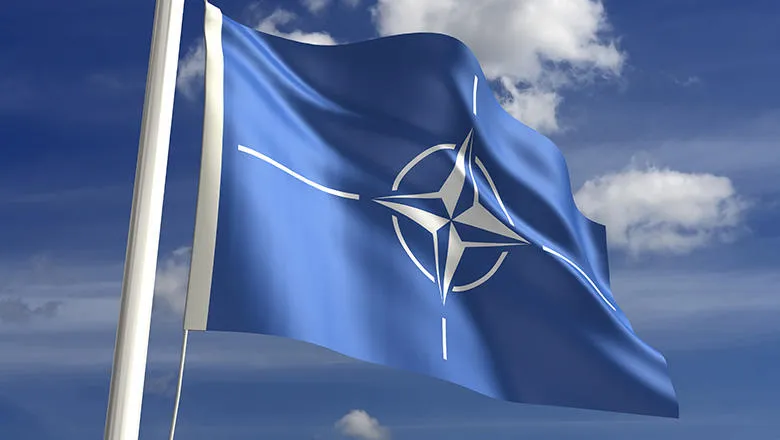Since it was established in 1949, NATO has played a vital role in preserving a way of life based on freedom and liberal values. As new threats emerge from an increasingly aggressive China and Russia, the alliance must step up to meet them and demonstrate its enduring importance in a more uncertain world. Failure to do so risks imperilling global security and undermining the prosperity and stability that NATO has helped to create for more than 70 years.
George Robertson, former NATO Secretary General and Visiting Professor at the Policy Institute
15 July 2020
NATO must adapt to counter China and Russia threat
Proposals from a former Secretary General and defence leaders

The future strategic direction of NATO
How the alliance should adapt to new threats
NATO urgently needs a coherent policy on China and to improve its response to disruptive Russian actions, according to a new paper by defence leaders, including a former Secretary General of the alliance.
The paper is authored by George Robertson, Secretary General of NATO, 1999-2004; Michael Fallon, UK Secretary of State for Defence, 2014-17; Catherine Ashton, The EU’s first High Representative for Foreign Affairs and Security Policy, 2009-14; Peter Ricketts, UK Permanent Representative to NATO, 2003-06, and UK National Security Advisor, 2010-12; Menzies Campbell, leader of the Liberal Democrats, 2006-07, and the party’s former spokesperson for foreign affairs and defence; and Benedict Wilkinson, Director of Research at the Policy Institute, King’s College London.
Published by the Policy Institute, the paper says NATO needs to develop a coherent policy towards China that includes “conflict avoidance and de-escalation”, particularly in light of the country’s actions in Hong Kong and attempts to expand its influence and power in the west.
The authors also call for NATO to ensure it has the necessary resources to counter Russian aggression in the form of cyber attacks, biological weapons and disinformation campaigns.
They say “smart, speedy, collective action and deterrence” is required to combat Russia’s efforts to undermine democracies and freedoms in NATO member states and partners.
And while the NATO-Russia Council has been suspended since the illegal invasion of Ukraine in 2014, the authors say that it should continue to be used as a mechanism for consultation and cooperation.
The paper outlines other proposals for the future strategic direction of NATO, which come as the alliance recently announced it would conduct a “reflection process” to ensure it is fit for purpose.
The paper says NATO should:
- Hold a “frank debate” about the underlying principles of freedom, democracy, human rights upon which the alliance was founded, as some NATO governments appear to be moving away from these fundamental values.
- Maintain the commitment to spend no less than 2 per cent of GDP on defence by 2024, despite the pressure that defence budgets will come under due to Covid-19.
- Invest in combatting disinformation campaigns about the alliance by setting up a rebuttal unit to address conspiracies and unfounded accusations and invest more in explaining what NATO is and what it does.
- Encourage allies to share the burden of responsibility on nuclear weapons committed to the alliance, by promoting collective decision-making, the storage of weapons on various nations’ territory, and investing in the right equipment.
- Establish more partnerships with non-NATO countries, particularly in Africa, to strengthen them and help mitigate potential security threats emanating from such nations.
Finally, the authors argue that the UK should play a leading role in reforming NATO, and that the “Global Britain” agenda should make clear that the country can make a major contribution on defence and security.
“Whatever political perspective the authors of this short paper might have, we are united in the belief that the UK must remain an outward-facing, engaged nation,” the report says.
